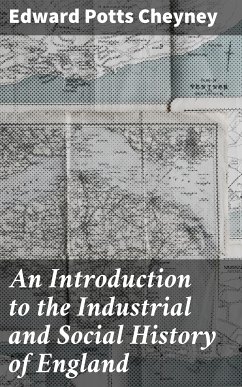In "An Introduction to the Industrial and Social History of England," Edward Potts Cheyney offers a comprehensive exploration of the intricate interplay between industrial development and social change throughout England's history. Employing a scholarly yet accessible literary style, Cheyney synthesizes historical data with perceptive analysis, illuminating key events from the Industrial Revolution through the 19th century. The book delves into not only the economic transformations of the period but also the societal impacts, examining labor movements, class dynamics, and the ramifications of factory life, thereby situating the narrative within a broader framework of historical discourse and methodology. Edward Potts Cheyney, an eminent historian and educator, was deeply influenced by the evolving landscapes of his time, rigorously studying the relationship between societal structures and industrial progress. His academic background, enriched by a commitment to uncovering the complexities of English history, informed his understanding of social movements and economic theories, shaping his perspectives as he penned this seminal work. Cheyney's passion for history is evident in his meticulous research and dedication to illuminating the often-overlooked nuances of social history. This book is an essential read for historians, students, and anyone interested in understanding the foundations of modern England. Cheyney's insightful analysis not only enhances our grasp of historical contexts but also encourages readers to reflect on the lasting repercussions of industrialization in contemporary society. A must-have for any history enthusiast. In this enriched edition, we have carefully created added value for your reading experience: - A succinct Introduction situates the work's timeless appeal and themes. - The Synopsis outlines the central plot, highlighting key developments without spoiling critical twists. - A detailed Historical Context immerses you in the era's events and influences that shaped the writing. - An Author Biography reveals milestones in the author's life, illuminating the personal insights behind the text. - A thorough Analysis dissects symbols, motifs, and character arcs to unearth underlying meanings. - Reflection questions prompt you to engage personally with the work's messages, connecting them to modern life. - Hand-picked Memorable Quotes shine a spotlight on moments of literary brilliance. - Interactive footnotes clarify unusual references, historical allusions, and archaic phrases for an effortless, more informed read.
Dieser Download kann aus rechtlichen Gründen nur mit Rechnungsadresse in A, B, BG, CY, CZ, D, DK, EW, FIN, F, GR, H, IRL, I, LT, L, LR, M, NL, PL, P, R, S, SLO, SK ausgeliefert werden.









